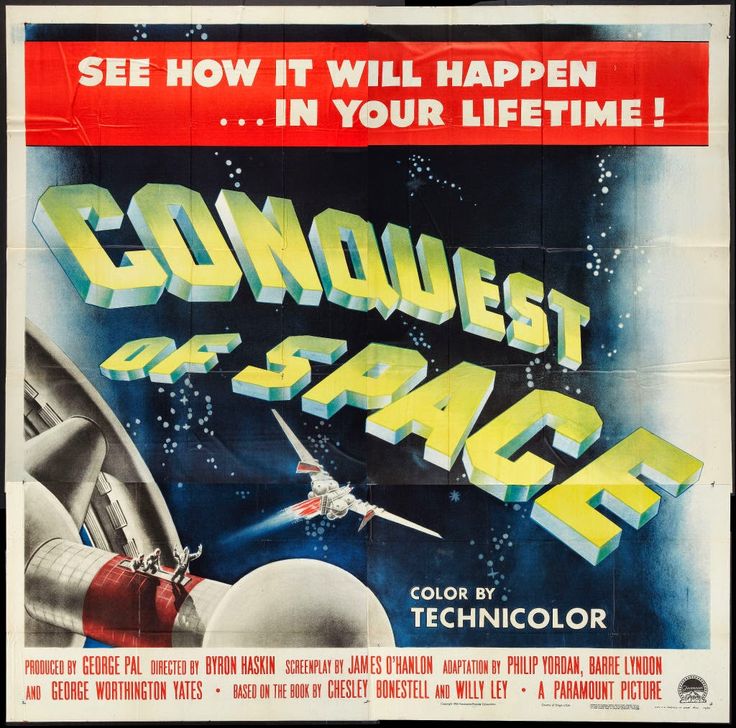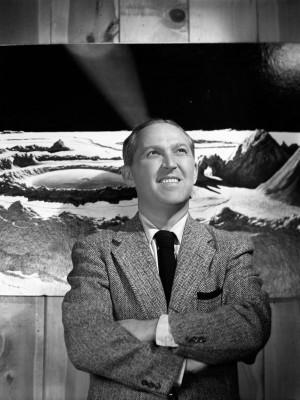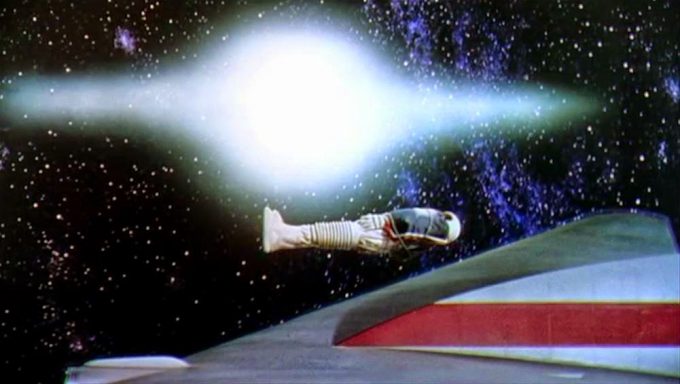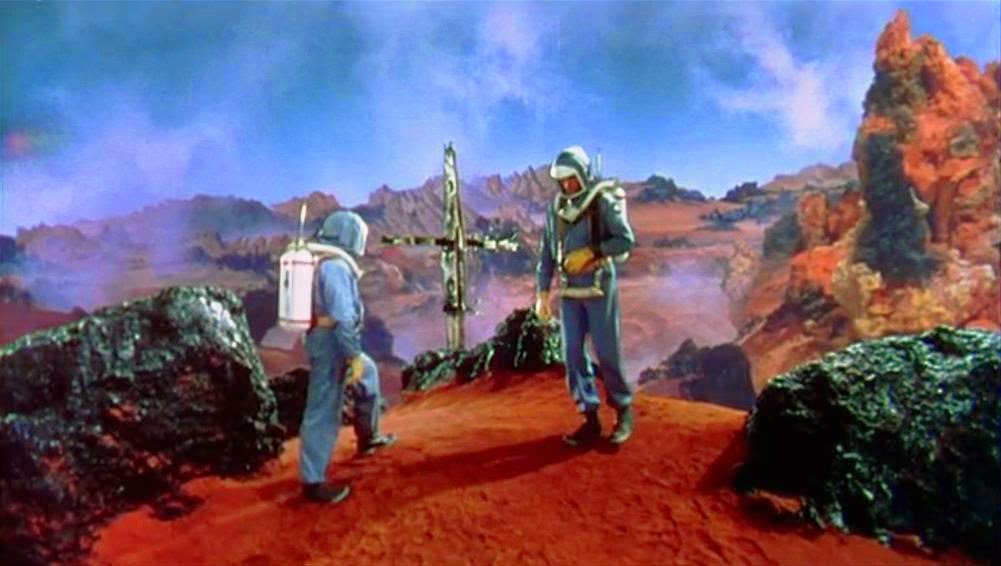George Pal produced this title and he always tried to get the science right, and left the screen play and direction to others in a division of labor, but, of course, he selected and hired the director and writer.

In this case he hired a director who specialised in special effects and knew nothing about directing a drama and a writer, well that is the problem, not one writer but several writers each of whom stitched in this and that and evidently no with a whole perspective. One output of the rumour mill has it that the studio executive in charge of production concluded during filming that the story lacked drama and insisted on adding the Oedipal element half-way through, while cutting the budget, a McKinsey manager avant le mot.
Pal’s groundbreaking ’Destination Moon’ (1950) had many critics who found it more like a boring documentary than a dramatic film. They said
it lacked humour
it lacked tension
it lacked sex appeal
it lacked humanity
it had too much science
it was too expository
it had too much vastness of space
and so on.
Pal went with the flow(s) and this is the result. All those elements ostensibly lacking in ‘Destination Moon’ were shoe-horned into the film. It is easy to picture the Happy Hungarian, as Pal was known, with a clipboard checking all these elements off the production schedule. The result is a mishmash of checklist items.

In a giant space station, the inevitable wheel because scientist at the time thought it was the way to the stars, a superior elite of the world’s best are preparing for the first moon landing. These individuals are the best of the best of the best of the best, a reference to the Men in Black for the cognoscenti. Each man is a volunteer, each man, for there are no women on the wheel, but yet there is still sex appeal. Intrigued? Read on.
That is the set-up and the ride is downhill from there. The writers reanimate the conventions of World War II submarine movies, where all the men were draftees, few were trained in more than turning a wrench, and the captain had sailed yachts. These superior spacemen complain about everything, want to go home, and are all Americans, almost. If this crew is the best Earth can do, better to stay at home.
Amid the crew are two foreigners, a Japanese and an Austrian. The Japanese gets one speech where he goes on about chopsticks as the miserable future for mankind, while the Austrian’s big scene is as hard to describe as it is to watch. Suffice it to say here it is pure kitsch.
The humour is supplied by an uneducated engineer who cracks jokes, I think, at intervals. Check. By the way this is a reprise for ‘Destination Moon’ where the radio operator did that.
The humanity must be all the whingeing by members of this superior elite who just want to go home. They are just regular guys, not super spacemen. Indeed.
The tension is maxed between commanding officer father and subordinate son, as if this is any way to run a railroad. Though there is a similar paternity in ‘Riders to the Stars’ (1954) from the typewriter keys of the ubiquitous Curt Siodmak.
The scientific exposition remains though, interspersed with lame jokes from the lame joker. Yes, these supermen in space still do not know the basics. All that training, all the preparation, all that work in building the space station wheel which was emphasised at the outset and gravity is still unknown.
‘The sex appeal?’ I hear the fraternity brothers asking. In another parody of World War II tropes the crew of the space wheel watches a movie with dancing girls and an uncredited Rosemary Clooney singing about love in the sand, an excerpt from ‘Here Come the Girls’ (1953). Sex appeal? Rosemary Clooney?
When that excerpt mercifully ends there are excruciating video messages for some crewmen. The Joker’s girlfriend drips 1950s celluloid sex on the screen, and then that Austrian, remember him, Ross Martin (who was born in Poland), who seems to combine German, Austrian, and Jew in a stereotype. His mother sounds like something from a Yiddish burlesque. Poor Ross. More humanity. Her private message to her son is screened in the recreation hall in front of the whole crew. Sensitive New Age management there.
The special effects are well done though many are borrowed from other films. But the vastness of space is there, and the movement from the wheel to the rocket and back is nicely done on a sled. And there is one memorable scene when the body of Ross Martin. who got in the way of an old reliable meteor, is consigned to the stars, though again the procedure mimics burial at sea.

Who had to tell his mother? I wondered.
As Launch Hour nears, the impossibly handsome William Hopper, before Perry Mason took him on, appears to tell the elite team that their mission is not the Moon but MARS! Gasp! Groan! More whingeing follows from the supermen volunteers.
Walter Brooke as the general is top-billed, a journeyman television supporting actor. Who knows why Paramount with its stable of talents chose him is anyone’s guess. He seems flat and robotic, in what I suppose the director thought was military discipline. There is a subplot about space fever that comes from being in space too long or maybe from watching this film.
Since the mission has crept to Mars, the general asked for volunteers and some of the whiners volunteer so they can whinge some more, and a small crew sets off for the Red Planet. As they do the general gets religion from out of the black and blue of space. He goes bonkers and tries to scuttle the rocket ship and kill them all. Wow! Eric Fleming, before heading them up and moving them out on ‘Rawhide’ is his son and socks him. This sock saves their lives but infuriates one of the crewmen whose unexplained loyalty to the general is so great that seemingly he would rather be killed by him than see the general’s son sock him on the chops.
Even though the general has gone Tea Party feral, the son leaves him at large, while they land on the Red Planet, which looks like the red hills of Georgia. These space explorers show no interest in Mars and wait for the opportunity to leave. The general continues to gum up the works, until…. Remember Oedipus.
The Japanese plants a seed and it grows.

See, Georgia. Trite as it is on screen there is an important point which we would recognise today but which was missed both by the scriptwriters and the audience at the time, namely that we Earthlings are destroying our own planet and the mission to Mars is to find new resources, including food. It turns out the earlier speech about chopsticks had a point in its garbled nonsense.
They have to wait on Mars for the next launch window, though nothing about that is explained, though gravity had to be explained earlier, and thanks to the general their supplies are low. They make no effort to record observations or explore the red planet. However, it snows and with the water from that they can power the rocket back home! Well that is what it looks like.
But the snow is for Christmas and we have another derivation from WWII movies, with a schmaltzy Christmas on the front line. All the while the loyal crewman mutters threats to the son. It is all so stagey that no one is interested. least of all this observer.
Eric Fleming had a career on television which was cut short, when he drowned in an accident while filming on location.
This film concentrates on the psychological aspects of life in space, and not the technology, nor hairy and scary aliens. That is a welcome focus but the execution is so diluted that most viewers will miss the point. It is diluted mainly by all the tropes from World War II movies, the static direction, the wooden acting, and the mechanistic checklist. Moreover, there is little interest shown in space and exploration by this crew who just want to go home.
One famous scene is the dining hall. Yes, there is a dining hall per all those World War II movies, but in this hall there is no food, but only pills. Yet there is still a vast hall with cafeteria tables and the whole crew assembled for the service of pills. Another pointless trope that undermines the awe and mystery of space travel.
Skip to content
